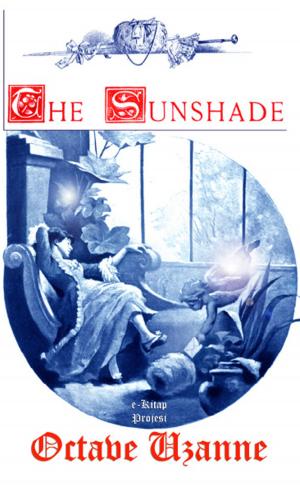| Author: | Maximilian J. Rudwin | ISBN: | 9786155565557 |
| Publisher: | eKitap Projesi | Publication: | April 14, 2015 |
| Imprint: | eKitap Projesi | Language: | English |
| Author: | Maximilian J. Rudwin |
| ISBN: | 9786155565557 |
| Publisher: | eKitap Projesi |
| Publication: | April 14, 2015 |
| Imprint: | eKitap Projesi |
| Language: | English |
Of all the myths which have come down to us from the East, and of all the creations of Western fancy and belief, the Personality of Evil has had the strongest attraction for the mind of man.
The Devil is the greatest enigma that has ever con-fronted the human intelligence. So large a place has Satan taken in our imagination, and we might also say in our heart, that his expulsion therefrom, no matter what philosophy may teach us, must for ever remain an impossibility. As a character in imagi-native literature Lucifer has not his equal in heaven above or on the earth beneath. In contrast to the idea of Good, which is the more exalted in proportion to its freedom from anthropomor-phism, the idea of Evil owes to the presence of this element its chief value as a poetic theme.
The discrowned archangel may have been inferior to St. Michael in military tactics, but he cer-tainly is his superior in matters literary. The fair angels—all frankness and goodness—are beyond our comprehension, but the fallen angels, with all their faults and sufferings, are kin to us.
There is a legend that the Devil has always had literary aspi-rations. The German theosophist Jacob Böhme relates that when Satan was asked to explain the cause of God’s enmity to him and his consequent downfall, he replied:
“I wanted to be an author.” Whether or not the Devil has ever written anything over his own signature, he has certainly helped others compose their greatest works. It is a significant fact that the greatest im-aginations have discerned an attraction in Diabolus. What would the world’s literature be if from it we eliminated Dante’s Divine Comedy, Calderón’s Marvellous Magician, Milton’s Paradise Lost, Goethe’s Faust, Byron’s Cain, Vigny’s Eloa, and Lermon-tov’s Demon? Sorry indeed would have been the plight of litera-ture without a judicious admixture of the Diabolical. Without the Devil there would simply be no literature, because without his intervention there would be no plot, and without a plot the story of the world would lose its interest.
Even now, when the belief in the Devil has gone out of fashion, and when the very mention of his name, far from causing men to cross themselves, brings a smile to their faces, Satan has continued to be a puissant personage in the realm of letters. As a matter of fact, Beelzebub has perhaps received his greatest elaboration at the hands of writers who believed in him just as little as Shake-speare did in the ghost of Hamlet’s father.
Of all the myths which have come down to us from the East, and of all the creations of Western fancy and belief, the Personality of Evil has had the strongest attraction for the mind of man.
The Devil is the greatest enigma that has ever con-fronted the human intelligence. So large a place has Satan taken in our imagination, and we might also say in our heart, that his expulsion therefrom, no matter what philosophy may teach us, must for ever remain an impossibility. As a character in imagi-native literature Lucifer has not his equal in heaven above or on the earth beneath. In contrast to the idea of Good, which is the more exalted in proportion to its freedom from anthropomor-phism, the idea of Evil owes to the presence of this element its chief value as a poetic theme.
The discrowned archangel may have been inferior to St. Michael in military tactics, but he cer-tainly is his superior in matters literary. The fair angels—all frankness and goodness—are beyond our comprehension, but the fallen angels, with all their faults and sufferings, are kin to us.
There is a legend that the Devil has always had literary aspi-rations. The German theosophist Jacob Böhme relates that when Satan was asked to explain the cause of God’s enmity to him and his consequent downfall, he replied:
“I wanted to be an author.” Whether or not the Devil has ever written anything over his own signature, he has certainly helped others compose their greatest works. It is a significant fact that the greatest im-aginations have discerned an attraction in Diabolus. What would the world’s literature be if from it we eliminated Dante’s Divine Comedy, Calderón’s Marvellous Magician, Milton’s Paradise Lost, Goethe’s Faust, Byron’s Cain, Vigny’s Eloa, and Lermon-tov’s Demon? Sorry indeed would have been the plight of litera-ture without a judicious admixture of the Diabolical. Without the Devil there would simply be no literature, because without his intervention there would be no plot, and without a plot the story of the world would lose its interest.
Even now, when the belief in the Devil has gone out of fashion, and when the very mention of his name, far from causing men to cross themselves, brings a smile to their faces, Satan has continued to be a puissant personage in the realm of letters. As a matter of fact, Beelzebub has perhaps received his greatest elaboration at the hands of writers who believed in him just as little as Shake-speare did in the ghost of Hamlet’s father.















